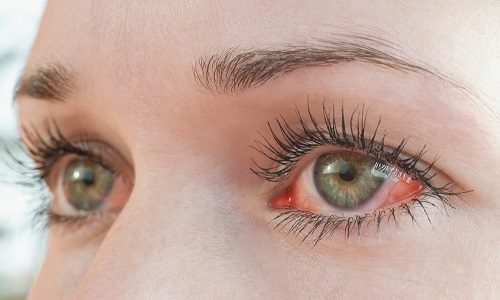
It is normal to notice changes in your vision as you get older. These may include loss of focus, having trouble distinguishing colors, and needing more time to adjust changing levels of light. Still, it is important to take precaution to minimize the risk of serious eye problems as you get older.
In honor of Healthy Aging Month, Bay Area ophthalmologist and cornea specialist Mark Mandel, MD, is here to share ways you can help preserve your vision and care for your eyes through the years.
Eat a Healthy, Eye-Friendly Diet
There is enough scientific evidence to suggest that consuming certain vitamins and minerals can minimize the risk of certain eye diseases, including cataracts and age-related macular degeneration. For good eye health, eat foods high in the following nutrients:
- Vitamin C
- Beta-carotene
- Lutein
- Zeaxanthin
- Omega-3 fatty acids
Don’t Smoke
Smoking affects various aspects of your health, and your eyes are no exception. Research shows that smoking increases the risk of age-related macular degeneration, cataracts, glaucoma and other eye diseases.
Protect Your Eyes from the Sun
Protecting your eyes from the sun’s UV rays minimizes the risk of developing serious eye conditions, including cancer and cataracts. The best way to protect your eyes from the sun is to wear sunglasses that offer 100 percent UV protection. Because the sun’s rays can penetrate through clouds, it is essential you wear sunglasses year round, even during cold, overcast weather.
Manage Health Conditions
Health conditions such as hypertension and diabetes are linked to certain serious eye diseases, including cataracts. If you have a chronic condition, work with your primary care doctor to keep it under control. Take all medications as prescribed, see your primary doctor regularly and keep your eye doctor in the loop when it comes to your general health. You should also maintain a healthy weight, as being overweight increases the risk of diabetes and other chronic conditions connected to eye conditions.
Keep Up with All Eye Exams
Maintaining all of your regular eye exams is important, even if you are not experiencing any symptoms. This is because many eye diseases begin asymptomatic and can only be detected through an eye exam performed by an eye doctor. How often you should get your eyes examined depends on various factors, including your eye, current eye health and family history of eye diseases.
If you are experiencing any unusual eye symptoms, we encourage you to schedule a personal appointment with our ophthalmologist and cornea specialist Mark Mandel, MD. Contact Optima Eye by emailing us or calling 510-886-3937 today.


